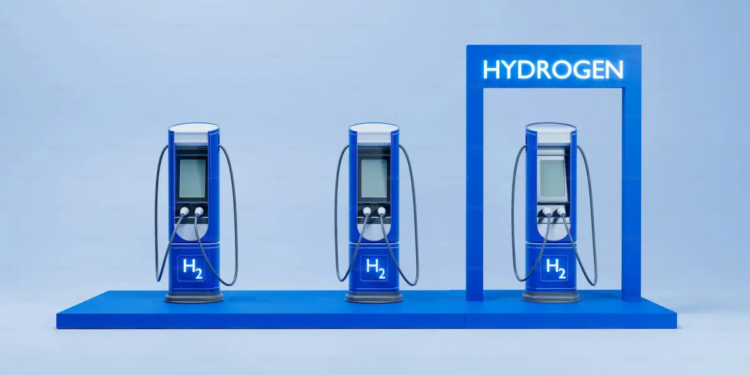For car owners in the UAE, the debate between Special 95 vs Super 98 is a common one. With both fuel types available at most petrol stations, drivers often wonder which option is best for their vehicle and their wallet. The choice isn’t just about price—it also involves performance, efficiency, and long-term engine health. In this article, we’ll break down the key differences, advantages, and considerations to help you make the right decision.
Understanding Fuel Grades in the UAE
In the UAE, fuel is categorized mainly by its octane rating. The octane rating measures a fuel’s resistance to engine knocking, which occurs when air-fuel mixtures ignite prematurely in the engine cylinder. The higher the octane number, the better the fuel resists knocking.
- Special 95: Has an octane rating of 95, suitable for most standard vehicles and mid-range engines.
- Super 98: Has an octane rating of 98, designed for high-performance engines that require greater resistance to knocking.
While both fuels meet international standards, the main distinction lies in engine compatibility and performance optimization.
Special 95: The Reliable Everyday Choice
Special 95 is the most widely used fuel grade in the UAE. It’s cost-effective and works well with the majority of sedans, SUVs, and compact cars.
Benefits of Special 95:
- Affordability – Special 95 is cheaper than Super 98, making it budget-friendly for daily drivers.
- Wide Compatibility – Suitable for most cars recommended by manufacturers to run on 95-octane fuel.
- Balanced Performance – Offers adequate efficiency and smooth performance for standard driving needs.
Who Should Use Special 95?
- Drivers of non-luxury or mid-range cars
- People who mainly use their car for city commutes
- Those who want a balance between cost savings and performance
If your vehicle manual specifies 95-octane fuel, there’s no need to spend extra on Super 98.
Super 98: The Premium Performance Option
Super 98 is designed for engines that demand higher compression and better ignition control. It is commonly used in sports cars, luxury vehicles, and turbocharged engines.
Benefits of Super 98:
- Enhanced Engine Performance – Provides smoother acceleration and maximum power output in performance cars.
- Engine Protection – Reduces the risk of knocking, which can damage high-performance engines.
- Fuel Efficiency – Some engines running on Super 98 may achieve better mileage due to optimized combustion.
Who Should Use Super 98?
- Owners of sports cars, luxury cars, or turbocharged vehicles
- Drivers who frequently push their cars to high speeds on highways
- Anyone whose manufacturer specifically recommends 98-octane fuel
Using Super 98 in cars that don’t require it won’t harm the engine but may not bring significant performance gains—just higher costs.
Key Differences Between Special 95 and Super 98
Here’s a quick comparison to help you decide:
| Feature | Special 95 | Super 98 |
| Octane Rating | 95 | 98 |
| Best For | Standard cars & daily driving | Luxury, sports & high-performance vehicles |
| Cost | More affordable | More expensive |
| Performance | Adequate for most vehicles | Optimized for high-compression engines |
| Engine Knock Resistance | Good | Excellent |
Common Myths About Fuel Choices
Many drivers are confused by misconceptions when choosing between Special 95 vs Super 98. Let’s clear up a few:
- “Super 98 always makes your car faster.”
Not true. If your car is built for Special 95, using Super 98 won’t boost horsepower. - “Using Special 95 in a car that needs Super 98 is fine.”
False. This can cause engine knocking, reduce efficiency, and even harm your engine long term. - “Mixing the two fuel types improves performance.”
Mixing fuels won’t provide special benefits. Always stick to the manufacturer’s recommended grade.
How to Choose the Right Fuel for Your Car
The best way to decide between Special 95 vs Super 98 is to check your car owner’s manual. Car manufacturers clearly state the minimum octane rating your engine requires.
- If your car manual says 95, use Special 95.
- If it says 98, always choose Super 98.
- If it says 95 or higher, you can use either—but Special 95 will be the cost-effective choice.
The Cost Factor in the UAE
Fuel prices in the UAE fluctuate monthly, and the price gap between Special 95 and Super 98 is often small but noticeable. For drivers who cover long distances daily, even a slight difference adds up over time. That’s why many people stick with Special 95 unless their car specifically requires Super 98.
Final Thoughts
The Special 95 vs Super 98 decision ultimately comes down to your car’s requirements, driving style, and budget.
- Choose Special 95 if your car manual recommends it, especially for daily commuting and cost savings.
- Choose Super 98 if you own a luxury or performance car that needs higher octane fuel for optimum performance and protection.
By sticking to the right fuel grade, you’ll ensure better engine health, improved efficiency, and a smoother driving experience on UAE roads.
✅ Bottom line: Always follow your car manufacturer’s fuel recommendation. Using the right petrol type isn’t just about saving money—it’s about keeping your engine healthy for the long run.











































































